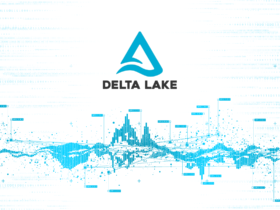In this ever-changing world of healthcare, technological innovations are continuously changing the definition of what is possible. It keeps on making impossible things possible. Among these incredible innovations, generative artificial intelligence (AI) has brought a great transformation. It has completely changed our approach to medical diagnosis, treatment, and remote patient care. From medical image analysis to drug discovery and personalized treatment, Generative AI is revolutionizing global health initiatives and telemedicine. It is offering amazing opportunities to improve patient outcomes and increase healthcare delivery worldwide. In this article, we will see how generative AI is revolutionizing global health initiatives and telemedicine.
Medical Image Analysis:
Medical imaging provides great help in diagnosing and treating different diseases like cancer, neurological disorders, etc. Generative AI algorithms like convolutional neural networks (CNNs) and generative adversarial networks (GANs) have the capability to assess and interpret medical images with full precision and efficiency. These systems can find out any anomalies and help radiologists in making more precise diagnoses. They can also foresee disease advancement according to imaging data.
Drug Discovery:
We know that drug discovery is very time-consuming and also very expensive. It takes several years and various resources to get a new medicine to market. As generative AI has come into play, it has been transforming this drug discovery by fastening the process through the generation of novel molecular structures and predictive modeling of drug-target interactions. By using deep learning algorithms and large datasets, researchers can recognize favorable drug candidates more quickly and accurately. Generative AI is revolutionizing the treatment of various diseases, including cancer, infectious diseases, and rare genetic disorders.

Personalized Treatment:
We all must have heard this one line that one size does not fit all. This is applied to the healthcare sector as well. Personalized treatment fulfills the individual needs and unique characteristics of patients. Generative AI algorithms can examine multidimensional patient data, like genetic information, biomarkers, and clinical parameters, to develop personalized treatment plans. By using predictive modeling and reinforcement learning techniques, healthcare providers can recognize the most effective interventions for each patient. It helps in reducing unfavorable effects and increases treatment efficacy.
Remote Patient Monitoring:
Telemedicine is a very important tool in
giving healthcare services remotely. It has been of the utmost importance, mainly in underserved areas. It also played a great role during times of the COVID-19 pandemic. Generative AI technologies enable remote patient monitoring systems that continuously collect and analyze health data. It collects vital signs, activity levels, and disease biomarkers. By using machine learning algorithms, these systems detect deviations from baseline health parameters, alert healthcare providers to potential issues, and intervene proactively to prevent complications. Generative Ai is improving patient outcomes and lessening healthcare costs.
Disease Prediction:
To treat any disease effectively, early detection and prediction of diseases play an important part. It is critical to prevent the progression of disease and improve treatment outcomes. Generative AI algorithms can examine various datasets, like electronic health records, genomic data, and environmental factors, to recognize patterns and risk factors related to various diseases. Healthcare providers can implement preventive measures by predicting a person’s susceptibility to particular conditions. Disease prediction leads to more effective disease management and population health management strategies.
AI-driven Healthcare Innovations:
The merging of generative AI with other cutting-edge advances like wearable gadgets, Internet of Things (IoT) sensors, and blockchain is driving a wave of healthcare developments with far-reaching implications. From smart wearable gadgets that monitor patients’ health metrics to blockchain-powered platforms that securely store and share medical data, these developments are reshaping the healthcare ecosystem. Apart from this, collaborative endeavors between the academia, industry, and government partners are essential to harnessing the complete potential of generative AI in healthcare and guaranteeing its moral and responsible deployment.

Impact of Generative AI on Global Health:
The integration of generative AI into healthcare frameworks has the potential to democratize access to high-quality medical services and address disparities in healthcare delivery around the world. By empowering remote consultations, diagnostic help, and decision support tools, generative AI can amplify the reach of healthcare suppliers to remote and underserved communities. It enables patients to get timely and equitable care in any case of their geographical location or financial status. In addition, by automating routine tasks and increasing healthcare professionals’ ability, generative AI can lighten the burden on strained healthcare frameworks and upgrade productivity and adaptability.
Benefits of Using Generative AI in Healthcare:
The benefits of generative AI in healthcare are given below:
- Improved Diagnostic Accuracy:
Generative AI algorithms can assess intricate medical information, including pictures, hereditary data, and clinical records, with full accuracy. They recognize subtle patterns and inconsistencies that may evade human recognition. These algorithms enhance diagnostic accuracy and drive the prior discovery of diseases and more successful treatment methodologies.
- Enhanced Treatment Results:
Personalized treatment plans custom-made to patient characteristics, empowered by generative AI, can optimize helpful results and minimize bad impacts. By foreseeing patient reactions to distinctive medications and adjusting treatment methodologies in real-time, healthcare suppliers can maximize treatment adequacy and make strides in results.
- Cost Savings:
By streamlining clinical workflows, automating repetitive tasks, and reducing diagnostic errors, generative AI promotes cost savings for healthcare systems. In addition, proactive interventions encouraged by AI-driven remote patient observing frameworks can prevent expensive complications and clinic readmissions.
- Increased Efficiency:
Generative AI calculations can increase healthcare professionals’ skills and empower them to create more educated choices and prioritize assets viably. By automating routine tasks, such as medical image analysis and administrative duties, generative AI liberates up time for clinicians to concentrate on patient care.
- Accelerated Medical Research:
The application of generative AI in medical research quickens the pace of discovery by encouraging the examination of large-scale datasets and the generation of novel speculations. By distinguishing potential drug candidates, anticipating drug-target interactions, and simulating clinical trials, generative AI speeds up the drug discovery process and opens modern roads for helpful advancement.
- Enhanced Population Health Management:
Generative AI empowers population-level examination of healthcare information. It permits healthcare suppliers and policymakers to recognize patterns, risk components, and disease hotspots. By anticipating disease outbreaks, optimizing asset allotment, and executing targeted interventions, generative AI underpins proactive populace health management techniques.
- Remote Patient Monitoring and Telemedicine:
In inaccessible and underserved zones, generative AI-powered telemedicine stages empower high-quality healthcare administrations. It overcomes geological obstructions and expands patient engagement. By encouraging remote consultations, diagnostic help, and medicine administration, generative AI improves healthcare availability and comfort.
- Ethical Considerations and Patient Privacy:
As with any innovation, the moral deployment of generative AI in healthcare is vital. Protecting patient privacy, guaranteeing information security, and advancing straightforwardness and responsibility in AI-driven decision-making processes are fundamental contemplations to reduce potential dangers and maintain trust and certainty in healthcare frameworks.
Conclusion:
Generative AI is revolutionizing global health activities and telemedicine by providing astounding opportunities to upgrade patient care, make strides in healthcare delivery, and advance medical research. By utilizing the control of AI-driven innovations, healthcare partners can address challenges, bridge holes in access to care, and improve health results for people and communities. As we are grasping the potential of generative AI in healthcare, it is critical to prioritize moral contemplations, secure patient security, and guarantee equitable access to these transformative innovations.








